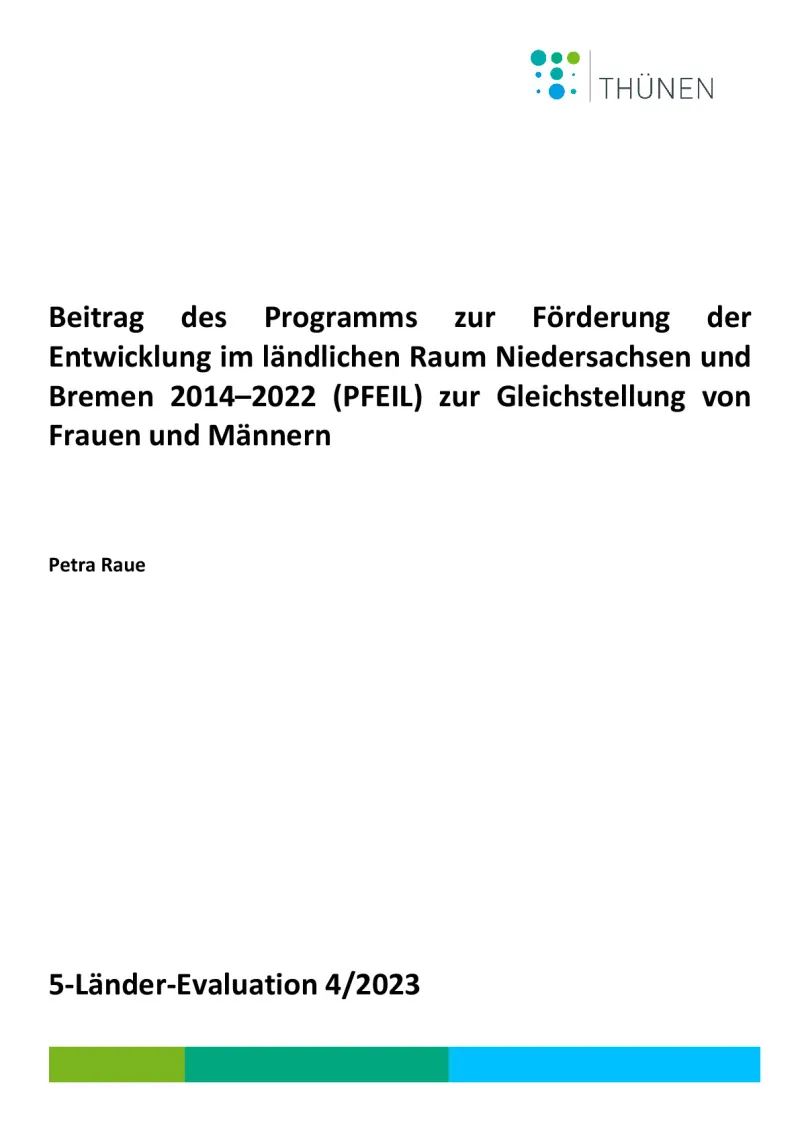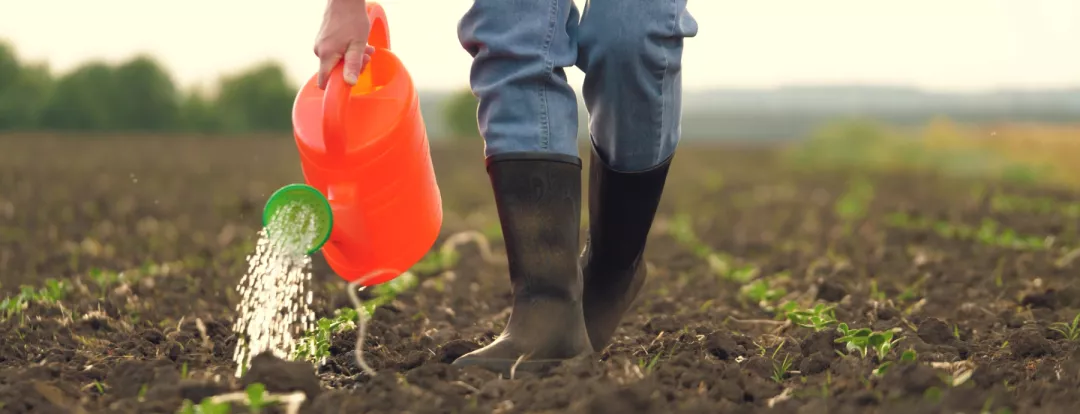Contribution of the 2014-2022 RDP in Lower Saxony and Bremen on gender equality
This evaluation report focuses on the contribution of the 2014-2022 Rural Development Programme in Lower Saxony and Bremen to the equality between women and men.
- Germany
- 2014-2022
- Socio-economic impacts


This evaluation, conducted as part of five country evaluations and published in 2023, focuses on the contribution of the 2014-2022 Rural Development Programme (RDP) in Lower Saxony and Bremen to gender equality.
The study focuses on Lower Saxony as hardly any gender-relevant projects have been realised within the framework of RDP in Bremen. It analyses the programme contents, structures and processes regarding the application of gender mainstreaming and the gender-related effects of support measures.
The analysis of the application level of gender mainstreaming includes the following questions: how far was the analysis of the initial situation gender differentiated so that disparities became visible? Have gender aspects been integrated into the programme strategy? Have appropriate needs and objectives been identified? How far has equality been taken into account in the design and implementation of the support measures?
The analysis is based on programme documents such as the RDP, guidelines, selection criteria, implementation reports, and the evaluation of funding data. Gender-specific analyses of existing data were carried out, while specific questions were integrated into surveys and interviews.
Also, the LEADER regional development concepts and integrated rural development concepts were screened to consider the RDP's cross-cutting objective.
In 2022, the author also interviewed regional managers from five LEADER regions whose regional development concepts contained comparatively concrete approaches.
The evaluation considered indicators related to gender inequality, such as the gender care gap, gender pay gap, gender lifetime earnings gap and gender share of agricultural holdings.
Concerning the effect of funding, the contribution of sub-Measure 4.2 Processing and Marketing, sub-Measure 7.5 Tourism, sub-Measure 16.1 EIP-Agri and sub-Measure 16.9 Transparency cannot be estimated due to implementation status and insufficient data, respectively.
The evaluation showed that the design of gender mainstreaming at the programme level in the 2014-2022 RDP of Lower Saxony and Bremen is relatively advanced compared to other RDPs. The full version of the SWOT was gender-differentiated for many areas. The strategy for implementing the cross-cutting objective of equality and non-discrimination set out in the annexe to the programme is positively mentioned, but this was only partially factored into the design of measures. The project selection criteria are suited for emphasising equality, but their concrete influence on implementing the measures is limited.
With regard to the gender-related effects of the funding, the picture is largely ambivalent.
The 2014-2022 RDP of Lower Saxony and Bremen offers limited potential for the explicit promotion of gender equality due to the focus of funding on environmental and agricultural policy issues. The analysis of funding data in the RDP shows that 59% of the funds were disbursed for measures that were categorised as gender-neutral. It is essential to consider that gender-neutral measures do not offer direct potential to contribute to gender equality. More than half of these funds (33% of public funds) are paid for area-based measures and animal welfare measures to farm managers, who are predominantly male.
In terms of the gender-related effects, individual measures, such as the qualification measure, provided positive results. Also some positive employment effects can be observed. However, there are clear deficits in the equal participation of women in the planning and steering of various development processes. The exclusion of women in politics and society, especially regarding leadership positions, is still occurring in most decision-making bodies. The potential offered by village and regional development processes is insufficient in terms of participation in decision-making processes and equal consideration of the needs of women and men in plans and concepts.
The unequal ownership and management structures in the agricultural sector can be addressed only to a limited extent. Women are significantly underrepresented in the 'Agricultural Investment Promotion Programme', which reinforces disparities in the agricultural sector and was found to have a negative effect.
The RDP communication strategy could more explicitly address the reduction or avoidance of stereotypes through articles and graphics.
Overall, the steps taken towards gender-sensitive implementation of EAFRD funding should be continued and further developed in future funding periods.
Author(s)
Petra Raue (Thünen Institute)